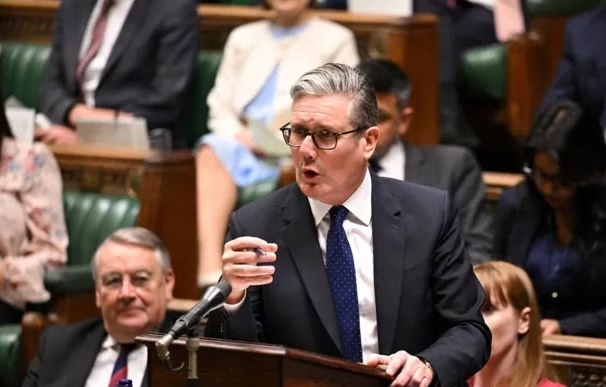MPs to Vote on Contentious Welfare Reforms Amid Ongoing Political Unrest
Members of Parliament are set to vote later today on the government’s proposed welfare reforms, amid growing political tensions and divisions within the Labour Party.
Despite some last-minute concessions, dozens of Labour MPs remain opposed to the bill, while the Conservative Party has confirmed it will vote against it, calling the proposals insufficient.
Labour Split Over Reforms
The Labour rebellion has shifted in size over recent days. Initially, more than 120 Labour MPs signed an amendment aimed at blocking the reforms entirely. That amendment has since been replaced by a new version supported by disability charities, which has drawn support from about 35 Labour MPs.
This suggests the government’s concessions may have reduced the threat of a major defeat—but not eliminated it.
Concerns remain over the promised review of Personal Independence Payment (Pip) assessments, which is now set to report at the same time the reforms would be implemented. Critics say this timeline limits the impact of the review.
At a meeting Monday night, Labour Chief Whip Sir Alan Campbell urged MPs to present a united front, while efforts to persuade potential rebels are expected to continue up until the vote this evening.
Under current government assurances, existing recipients of Pip and the health component of Universal Credit will not be affected, but new claimants will face the changes.
Conservative Opposition
Despite being in opposition, Conservative leader Kemi Badenoch announced her party would not support the reforms, arguing they do not go far enough.
“The benefits bill is too high,” Badenoch said. “It was £40 billion before COVID. It’s now projected to hit £100 billion by 2030. Labour’s plan doesn’t cut spending—it just slows its growth. That’s why we won’t back it.”
Criticism From All Sides
Opposition to the reforms has come from multiple directions. Some MPs argue the proposals won’t achieve their intended outcomes.
“Punitive welfare cuts like these won’t lead to the changes we’re being promised,” said Olivia Blake, Labour MP for Sheffield Hallam and a vocal critic of the plan. “They may save money in the short term, but costs will rise elsewhere—like in the NHS, housing, and social care.”
Blake also suggested that more MPs are weighing their stance than expected, and that the rebellion may be larger than it appears.
Poverty Impact and Financial Outlook
Work and Pensions Secretary Liz Kendall defended the bill on Monday, saying it strikes a balance: supporting those who can work while protecting those who cannot.
According to the Department for Work and Pensions, the reforms are now projected to push around 150,000 people into poverty by 2030, down from 250,000 in earlier projections before concessions were made.
Sir Stephen Timms, who will lead a key review tied to the concessions, stated the overall policy direction could still reduce poverty—particularly by helping more people into work—and stressed the importance of making Pip financially sustainable.
Meanwhile, the Liberal Democrats have called for the entire proposal to be put on hold for further scrutiny.
Originally expected to save the government £5 billion per year by 2030, the bill is now forecast to yield £3 billion in annual savings after recent changes, according to the Resolution Foundation think tank.











